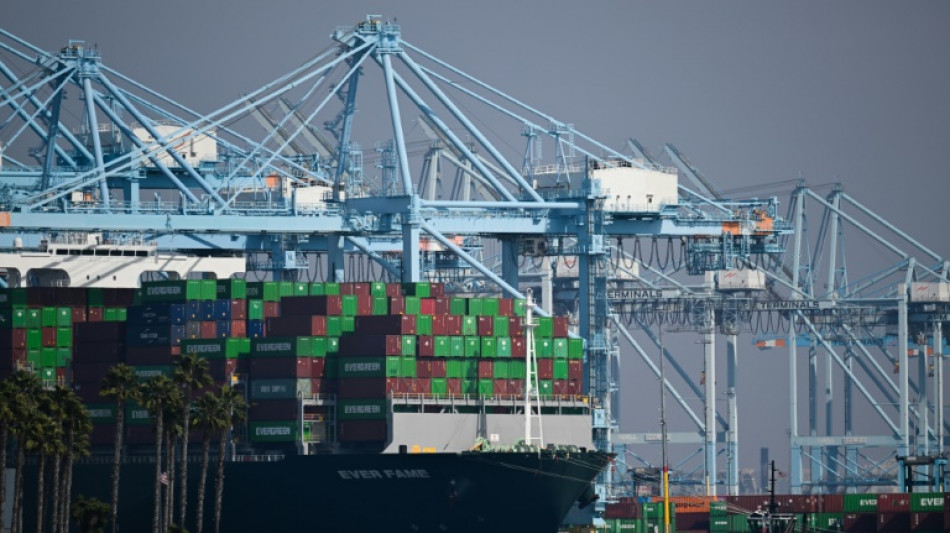
-
 Trial of Sean 'Diddy' Combs heads into closing arguments
Trial of Sean 'Diddy' Combs heads into closing arguments
-
Wallabies release Reds pair Faessler and Paisami for Lions clash

-
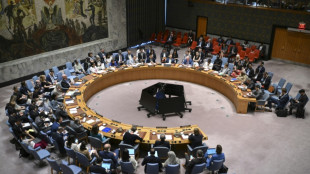 UN Charter: a founding document violated and ignored
UN Charter: a founding document violated and ignored
-
Vinicius, Mbappe have to defend: Real Madrid's Alonso

-
 US teen Cooper Flagg chosen by Mavericks with top pick in NBA draft
US teen Cooper Flagg chosen by Mavericks with top pick in NBA draft
-
Guardiola says City must be ready to 'suffer' in Orlando heat

-
 NBA studying uptick of Achilles injuries - Silver
NBA studying uptick of Achilles injuries - Silver
-
Pacquiao 'hungry' for comeback after four-year layoff

-
 'Job done': Sundowns coach proud despite Club World Cup exit
'Job done': Sundowns coach proud despite Club World Cup exit
-
RFK Jr vaccine panel targets childhood vaccinations in first meeting
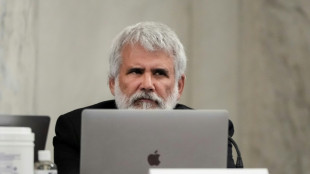
-
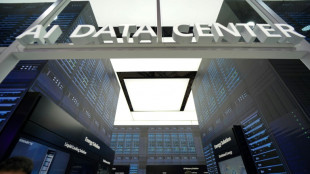 Tech giants' net zero goals verging on fantasy: researchers
Tech giants' net zero goals verging on fantasy: researchers
-
Australia quicks hit back after strong West Indies bowling effort

-
 Dortmund through to Club World Cup last 16, Fluminense deny Sundowns
Dortmund through to Club World Cup last 16, Fluminense deny Sundowns
-
Judge orders Trump admin to release billions in EV charging funds
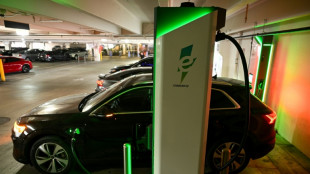
-
 Sale of NBA's $10 bn Lakers expected to close this year
Sale of NBA's $10 bn Lakers expected to close this year
-
US Fed proposes easing key banking rule
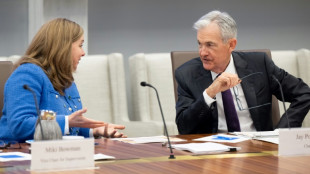
-
 Nvidia hits fresh record while global stocks are mixed
Nvidia hits fresh record while global stocks are mixed
-
Elliott-inspired England to play Germany in Under-21 Euros final

-
 Gunmen kill 11 in crime-hit Mexican city
Gunmen kill 11 in crime-hit Mexican city
-
Mbappe absent from Real Madrid squad for Salzburg Club World Cup clash

-
 Sainz opts out of race for FIA presidency
Sainz opts out of race for FIA presidency
-
Shamar Joseph rips through Australia top order in first Test

-
 Court rejects EDF complaint over Czech nuclear tender
Court rejects EDF complaint over Czech nuclear tender
-
Mbappe returns to Real Madrid training at Club World Cup

-
 Kenya anniversary protests turn violent, 8 dead
Kenya anniversary protests turn violent, 8 dead
-
Elliott double fires England into Under-21 Euros final

-
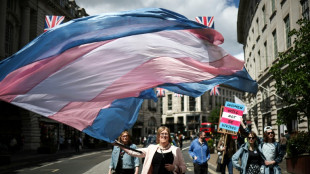 Trans campaigners descend on UK parliament to protest 'bathroom ban'
Trans campaigners descend on UK parliament to protest 'bathroom ban'
-
New York mayoral vote floors Democratic establishment
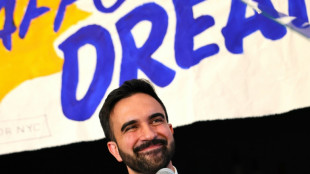
-
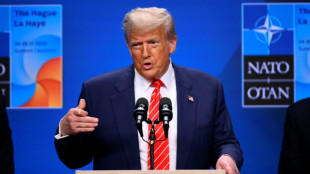 Trump claims 'win' as NATO agrees massive spending hike
Trump claims 'win' as NATO agrees massive spending hike
-
EU probes Mars takeover of Pringles maker Kellanova

-
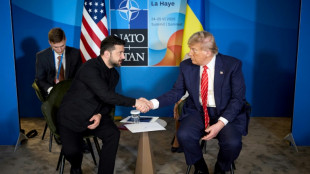 Sidelined Zelensky still gets Trump face time at NATO summit
Sidelined Zelensky still gets Trump face time at NATO summit
-
Mexico president threatens to sue over SpaceX rocket debris

-
 Amazon tycoon Bezos arrives in Venice for lavish wedding
Amazon tycoon Bezos arrives in Venice for lavish wedding
-
Shamar Joseph gives West Indies strong start against Australia

-
 Raducanu's Wimbledon build-up hit by Eastbourne exit
Raducanu's Wimbledon build-up hit by Eastbourne exit
-
RFK Jr.'s vaccine panel opens amid backlash over fabricated study
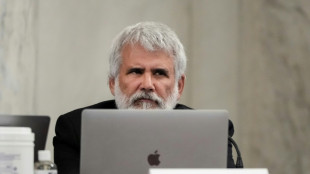
-
 'You try not to bump into things:' blind sailing in Rio
'You try not to bump into things:' blind sailing in Rio
-
Trump says 'three or four' candidates in mind for Fed chief
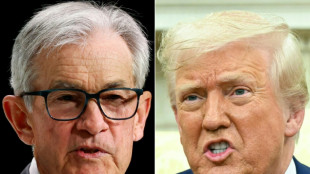
-
 Trump teases Iran talks next week, says nuclear programme set back 'decades'
Trump teases Iran talks next week, says nuclear programme set back 'decades'
-
Turkey tussles with Australia to host 2026 UN climate talks
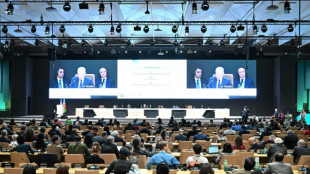
-
 Bielle-Biarrey 'fit' for Top 14 final after suffering concussion
Bielle-Biarrey 'fit' for Top 14 final after suffering concussion
-
James Webb telescope discovers its first exoplanet

-
 Kenya's Kipyegon seeks history with four minute mile attempt
Kenya's Kipyegon seeks history with four minute mile attempt
-
Gunmen kill 10 in crime-hit Mexican city

-
 Olympic surfing venue battling erosion threat
Olympic surfing venue battling erosion threat
-
Relief, joy as Israel reopens after Iran war ceasefire

-
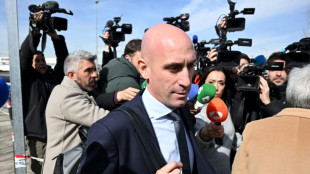 Spain upholds fine against Rubiales for Hermoso forced kiss
Spain upholds fine against Rubiales for Hermoso forced kiss
-
Iran hangs three more accused of spying as fears grow for Swede

-
 Australia choose to bat first in first Test against West Indies
Australia choose to bat first in first Test against West Indies
-
Gambhir backs India bowlers to 'deliver' despite first Test misery


What are reciprocal tariffs and who might be affected?
US President Donald Trump has threatened to open new fronts in his tariffs war by announcing reciprocal levies on other countries as soon as Tuesday, branding this "the only fair way" to trade.
Trump's fresh salvo could bring a broad tariff hike to emerging market economies like India and take aim at European Union value-added taxes, fanning tensions with the bloc, analysts warn.
- What are reciprocal tariffs? -
Tariffs are taxes imposed on goods imported from another country.
As for reciprocal tariffs -- during election campaigning, Trump promised: "An eye for an eye, a tariff for a tariff, same exact amount."
And on Sunday, he said he would make a detailed announcement on the tariffs on Tuesday or Wednesday, adding that "every country will be reciprocal."
One approach is to hike tariff rates on imports to match the rate that other countries apply to US products, said Goldman Sachs analysts in a note.
Matching this based on different products would raise the United States' average tariff rate by around two percentage points. Doing so to match the average tariff imposed by countries raises the US rate by a smaller amount.
But taking a product-focused approach has complexities.
While Washington has relatively low average tariffs at a 2.7 percent rate in 2022, it has higher rates in "very politically sensitive" areas such as apparel, sugar and pick-up trucks, said Cato Institute vice president of general economics Scott Lincicome.
Similarly, including non-tariff barriers like regulations in the calculus would add to complications.
- Who will be impacted? -
Reciprocal tariffs may open the door to "a broad tariff hike" on emerging market economies who have high duties on US products, JPMorgan analysts expect.
If officials go by average tariff rates applied on all products, countries like India or Thailand -- which tax imports at higher average rates than the United States does -- could be affected.
Trump has previously slammed India as a "very big abuser" on trade and this week, National Economic Council Director Kevin Hassett told CNBC that India had high tariffs that lock out imports.
Lincicome cautioned that high tariffs are often also imposed by poorer countries, who use them as a tool for revenue and protection as they have fewer resources to impose non-tariff barriers like regulatory protectionism.
Goldman Sachs estimates that "there should be no effect on countries with free trade agreements like Mexico, Canada, and Korea, limiting the overall impact" if Washington took a country-based approach to reciprocal tariffs.
- What are the complications? -
It remains unclear if Trump views the policy of reciprocal tariffs as an alternative to a 10-20 percent universal tariff he floated on the campaign trail -- or a separate policy.
One risk is that the Trump administration "could attempt to equalize non-tariff barriers to trade," said Goldman Sachs in a note. In particular, he could consider value-added taxes (VATs) when deciding how much to adjust tariffs.
Doing so stands to raise the average effective tariff rate by another 10 percentage points, Goldman analysts added.
Such a move might also be a response to high European Union VATs, JPMorgan said.
- What is the goal? -
"One of the objectives is to create uncertainty as a negotiating tactic, but uncertainty is a tax on doing business," Jeffrey Schott, senior fellow at the Peterson Institute for International Economics, told AFP.
Unpredictability surrounding tariffs, retaliation and non-trade issues all contribute to a situation that weighs on American and foreign firms, he said.
In the case of allies like Europe, Schott said, US objectives in negotiation could involve "economic and geopolitical priorities, including Ukraine."
They could include finding a better resolution of the situation in Ukraine, which has been fighting off a Russian invasion since 2022, but also to expand US exports in key sectors like LNG.
- Two-way street? -
The United States, however, does not have the lowest tariffs in the world and stands around the middle when it comes to wealthy, industrialized countries, said Cato's Lincicome.
"Should Trump's system be based on average tariff rates, then 'true' reciprocity would require US tariff rate reductions on goods from dozens of countries," he added in a recent report.
P.Tamimi--SF-PST
